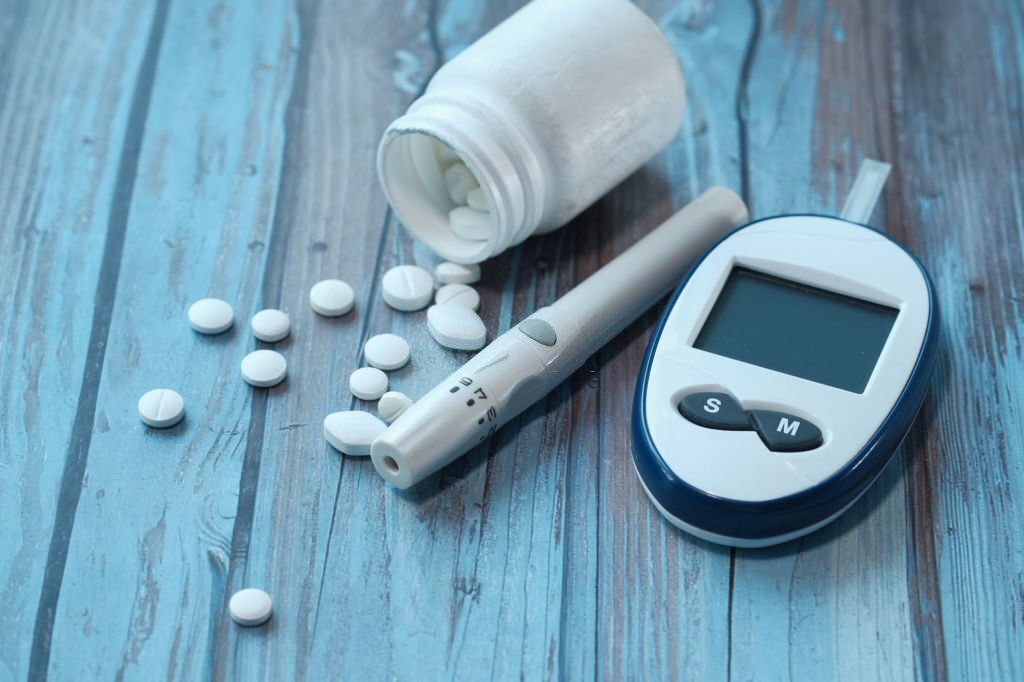Are you tired of the constant struggle to manage your diabetes? Yearning for breakthroughs that could enhance your quality of life? Does creatine and diabetes have any link: can creatine affect diabetes?
Five out of nine researches suggest creatine holds promising effects on diabetes, especially in (n = 2) diabetic individuals. With proper exercise, creatine can improve glucose metabolism in individuals with type 2 diabetes by transporting them into muscle cells via the GLUT-4 transporter.
The article examines the link between Creatine Intake and Diabetes, discussing their relationship and impact on diabetes management.
Let’s get started.
Creatine and Diabetes: The Boosted Glucose Levels
Creatine has potential effects on glucose levels. Emerging research suggests that creatine supplementation may positively influence individuals with diabetes. It allows for more efficient glucose uptake by cells, leading to better utilization and reduced blood sugar levels.
But the precise methods through which creatine impacts glucose and insulin levels in the body are yet to be fully understood. There is no consistent evidence showing changes in insulin sensitivity with creatine use.
The main potential mechanism for decreasing glucose levels is through increased GLUT-4 transporters. It helps glucose to enter the muscles.
Insulin levels remain unaffected by creatine; higher glucose levels are not driving insulin production. Even if there is a small increase in glucose, the benefits of creatine on performance and overall health may outweigh any potential drawbacks.
Creatine and Insulin Resistance
The relationship between creatine and insulin resistance in diabetes is still being explored. Taking creatine with carbohydrates can lead to a greater accumulation of creatine in the muscles.
Insulin stimulates both glucose and creatine transport in muscle cells. In laboratory studies, high creatine levels have been found to stimulate insulin secretion. However, the concentrations achieved in humans taking oral creatine do not affect insulin secretion.
Recent research on transgenic Huntington mice suggests that creatine supplementation could effectively treat insulin resistance. The study found that creatine had a neuroprotective effect, reduced hyperglycemia, and improved glucose response to injections in these mice.
These findings suggest that creatine supplementation may enhance muscle glucose uptake and glycogen synthesis mediated by insulin, potentially benefiting individuals with insulin resistance, such as those with type 2 diabetes and obesity.
Creatine and Muscle Glycogen Levels
Creatine is a useful supplement when the aim is to maximize muscle glycogen content. It is known to increase body mass, mainly due to water retention. While this is often seen as a negative aspect, it can have potential advantages before a race, such as reducing the need for excessive water intake during the race.
By enhancing muscle glycogen content, creatine allows the muscles to store more energy, improving performance and endurance during physical activities.
This increased capacity for glycogen storage can be particularly advantageous for endurance athletes who rely heavily on sustained energy output. Therefore, creatine supplementation can be a valuable tool to optimize muscle glycogen levels and enhance performance.

Potential Benefits of Creatine for People with Diabetes
Here are some possible benefits of creatine for people with diabetes.
Improved insulin sensitivity
Insulin resistance is common in diabetes, where the body becomes less responsive to insulin’s effects.
Some studies suggest that creatine supplementation may enhance insulin sensitivity, making the body more responsive to the insulin it produces or receives through medication. This can aid in better blood sugar control and diabetes management.
Reduced muscle wasting
Diabetes can sometimes lead to muscle wasting or atrophy, especially with poorly controlled blood sugar levels.
Creatine has the potential to counteract muscle wasting by promoting muscle protein synthesis and inhibiting muscle breakdown. This can help preserve muscle mass and improve overall physical function.
Enhanced recovery
Diabetes can sometimes slow healing due to impaired blood circulation and compromised immune function.
Creatine has potential benefits for enhancing recovery and reducing muscle damage following intense exercise or injury. This can be particularly useful for people with diabetes who may experience slower healing times.
Potential neuroprotective effects
Diabetes increases the risk of neurological complications, such as cognitive decline and peripheral neuropathy.
Some studies suggest that creatine might have neuroprotective properties and could help mitigate these risks. More research is needed to understand the effects of creatine on neurological health with diabetes.
Potential Risk of Creatine for People with Diabetes
Despite the positive things there, here are the potential risks of creatine for people with diabetes.
Kidney function
Creatine is processed and eliminated by the kidneys. While it may protect kidney function in diabetes, individuals with kidney issues should be cautious.
High doses or long-term use of creatine can strain the kidneys, potentially worsening kidney problems. Talk to your healthcare professional before considering creatine if you have kidney disease.
Can creatine affect the liver – discover with us.
Fluid balance
Creatine can cause water retention, leading to weight gain and changes in fluid balance. This can be concerning if you have conditions like high blood pressure or heart disease.
Monitor your fluid intake, stay hydrated, and consult your healthcare professional if you have heart-related conditions.
Blood sugar management
Although creatine can help improve glucose control, monitoring your blood sugar levels closely when supplementing is important.
Some may experience slight fluctuations in blood sugar. Work with your healthcare professional to adjust your diabetes medications or insulin.
Gastrointestinal distress
Creatine may cause stomach discomfort, bloating, or diarrhea in some individuals. These side effects are usually mild and temporary.
Medication interactions
Creatine might interact with certain medications, like diuretics or nonsteroidal anti-inflammatory drugs (NSAIDs), commonly used by people with diabetes.
These interactions can affect kidney function or medication effectiveness. Talk to your healthcare professional to ensure creatine is safe for your medications.

FAQs
How much sugar is in creatine?
Creatine itself does not contain sugar. It is a naturally occurring compound of amino acids, specifically arginine, glycine, and methionine. If you want to avoid sugar or are concerned about sugar intake, choose a pure creatine monohydrate powder or capsules without added sugars or sweeteners.
Does sugar level increase creatinine?
Diabetes can affect the kidneys’ filtering system, reducing the ability to remove waste products from the blood effectively. One of these waste products is creatinine, a byproduct of muscle metabolism. When the kidneys are not functioning optimally, creatinine can accumulate in the bloodstream.
Conclusion
In conclusion, creatine shows promise for individuals with diabetes, offering potential benefits such as improved blood sugar control, stronger muscles, and enhanced exercise performance. However, cautious and guided supplementation is essential, considering factors like kidney function and medication interactions.
Continued research is needed to understand the optimal use of creatine in diabetes management fully. By prioritizing comprehensive diabetes care and collaborating with healthcare professionals, you can uncover further insights and improve outcomes with diabetes.
For more information on safe supplementation, visit our blogs.

I am a health and wellness enthusiast working in a Pittsburgh-based wellness clinic. My primary role as a consultant is to tailor a balanced lifestyle for my patients, where positive steps and potent supplements play a synergistic role.


